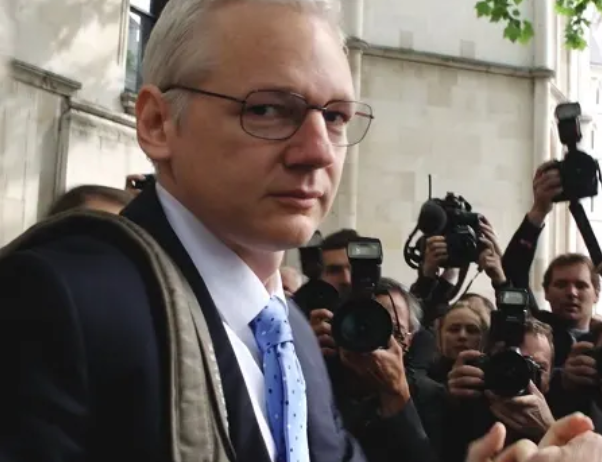Assange Arrested in London
The smarter way to stay on top of the multichannel video marketplace. Sign up below.
You are now subscribed
Your newsletter sign-up was successful

WikiLeaks founder Julian Assange has been arrested in London.
He had been living in asylum at the Ecuadorian Embassy in London since 2012, but that asylum was rescinded.
Assange could be extradited to the U.S.
The Justice Department was quick to charge Assange with conspiracy, saying the arrest was in connection with the U.S./UK Extradition Treaty.
The indictment is related to the Chelsea Manning leak of classified documents to Assange and his alleged active encouragement of it. Assange is charged with conspiracy to commit computer intrusion and faces a five-year prison sentence if convicted.
Assange also published emails to and from former Secretary of State and Democratic presidential candidate Hillary Clinton, a leak the Office of the Director of National Intelligence (ODNI) has said came from Russians--Assange has denied that--and was part of the campaign to undercut Clinton and help Donald Trump.
Among the implications of that leak, in addition to potentially helping Trump's campaign, was that CNN dropped contributor Donna Brazile, then-interim chair of the Democratic National Committee, after a leaked email revealed that Brazile had shared questions with the Clinton campaign in advance of a CNN debate and town hall meeting.
The smarter way to stay on top of the multichannel video marketplace. Sign up below.
Assange has argued that the U.S. government's pursuit of fellow leaker Edward Snowden and others like him threatened the future of national security journalism. "The Obama administration hopes to erect a new interpretation of law which defines journalistic sources as spies," Assange had argued back in 2013.
Wikileaks has provided a conduit for leakers to publish sometimes classified or secret documents.
“Julian Assange and Wikileaks maliciously conspired to steal and publish U.S military and intelligence classified information, compromising counterterrorism activities essential to homeland security. His arrest today in London is the first step to bringing him to justice," said Rep. Mike Rogers (R-Ala.), ranking member of the House Homeland Security Committee. “Assange’s arrest and future extradition will hopefully pressure Manning to cooperate with law enforcement so all of the people who put U.S. national security at risk can be held accountable.”
The Committee to Protect Journalists was not happy with the conspiracy charge.
"The potential implications for press freedom of this allegation of conspiracy between publisher and source are deeply troubling," said Robert Mahoney, deputy director of the Committee to Protect Journalists, in a statement. "With this prosecution of Julian Assange, the U.S. government could set out broad legal arguments about journalists soliciting information or interacting with sources that could have chilling consequences for investigative reporting and the publication of information of public interest."
A spokesperson for activist group CODEPINK said that group will beholding a protest at the British Embassy in Washington to call for Assange's immediate release and "protection of all whistle-blowers."
Contributing editor John Eggerton has been an editor and/or writer on media regulation, legislation and policy for over four decades, including covering the FCC, FTC, Congress, the major media trade associations, and the federal courts. In addition to Multichannel News and Broadcasting + Cable, his work has appeared in Radio World, TV Technology, TV Fax, This Week in Consumer Electronics, Variety and the Encyclopedia Britannica.

